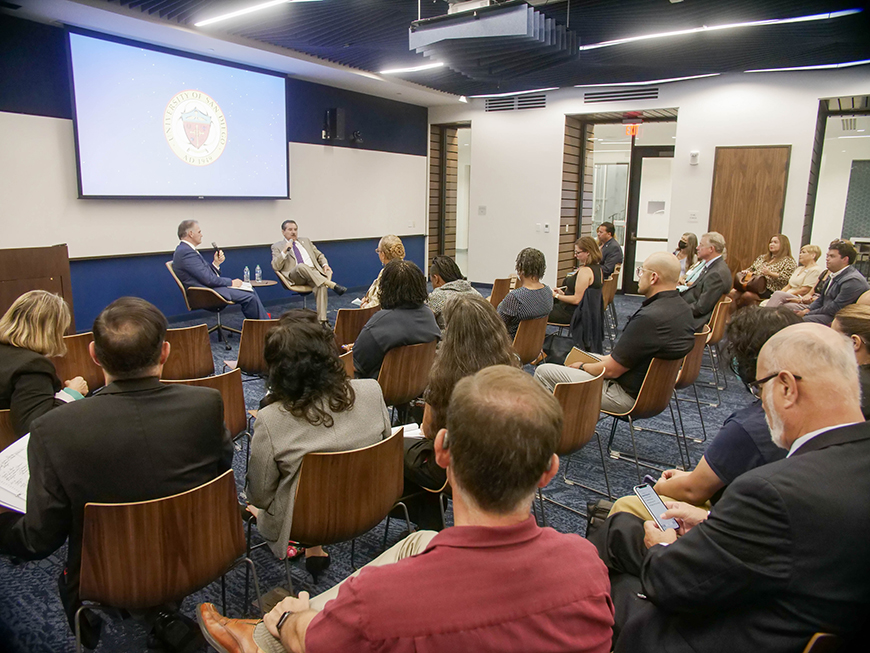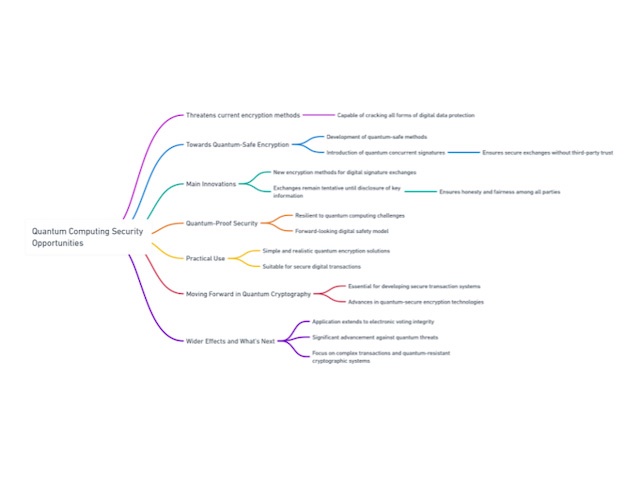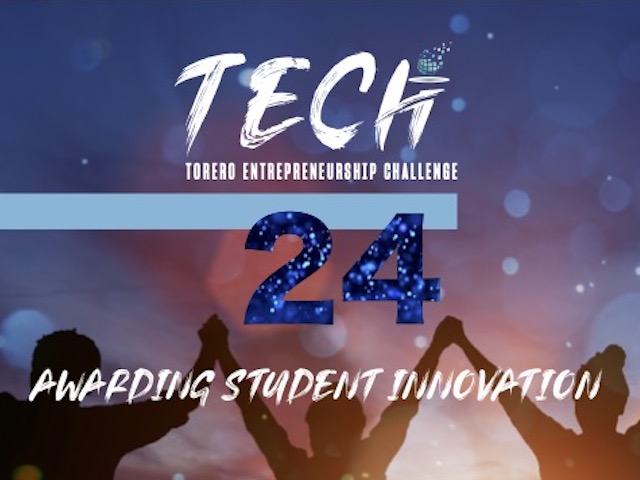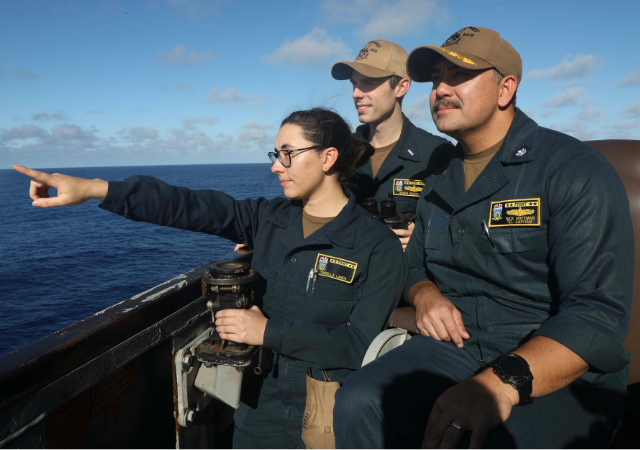USD, an emerging Hispanic Serving Institution
President of Hispanic Association of Colleges and Universities offers advice and inspiration to USD community

The University of San Diego received encouraging words this week from the president of the Hispanic Association of Colleges and Universities (HACU) as USD pushes forward in its quest to become what is officially called a Hispanic Serving Institution.
“You inspire me because you are trying to achieve some of the things we are trying to achieve,” HACU president and CEO Antonio Flores said, addressing a crowd of students, faculty, administrators and other higher education professionals Wednesday afternoon at the Nexus Theater inside the newly-opened Knauss Center for Business Education. “I see the continued energy of this university moving in the right direction.”
Flores and other HACU representatives attended several on-campus events, including HACU on the Road, where Flores presented the current state of the organization, and a one-on-one fireside chat between Flores and USD President James T. Harris III, DEd. The day served as a kick-off for the organization’s 36th annual conference being held this weekend in downtown San Diego.
“It was wonderful to be with Dr. Flores,” said Harris following the events. “It’s an inspiration for all of us, because we get to see what he has done with HACU — how he leads its members and how it has tripled its membership. It’s a representation of where the United States is going and where the world is going.”
Founded in 1986, HACU is the only national association representing existing and emerging Hispanic Serving Institutions (HSIs). HSIs are defined in Title V of the Higher Education Act as “not-for-profit institutions of higher learning with a full-time equivalent (FTE) undergraduate student enrollment that is at least 25 percent Hispanic.”
Currently, there are 559 HSIs and 393 emerging HSIs in the nation. As of the fall census, USD’s undergraduate enrollment of Hispanic-identifying students stands at 24% and the university is currently categorized as an “emerging HSI.”
USD’s Horizon Project was launched in 2021 and calls for the university to become an HSI by 2026. The project is the university’s multi-year, comprehensive and strategic initiative for diversity, equity and inclusion.
USD’s new Hispanic Serving Institution Council, co-chaired by Regina Dixon-Reeves, PhD, vice provost for Diversity, Equity and Inclusion and Center for Inclusion and Diversity director; and associate professor of Sociology Greg Prieto, PhD, will hold its first meeting next week. The new council will work from recommendations from USD’s original Hispanic Serving Institution task force and will help coordinate activity and initiatives moving forward.
“As we strive to become the premiere Catholic HSI and the school of choice for students who want an exceptional educational experience, we look for opportunities to learn from the collective wisdom of Dr. Flores and our colleagues at existing and emerging HSIs,” said Dixon-Reeves. “In the spirit of our Catholic Intellectual Tradition, we are working intentionally to build a campus community and environment that supports and allows all community members to thrive.”
Hispanic students now make up the second largest enrollment group by race and ethnicity, Flores said. HSIs enroll a majority of the 3.8 million Hispanic students in the country.
“HSIs are a microcosm of American universities,” Flores said during his address at the HACU On the Road event held at the Joan B. Kroc School of Peace Studies. “They represent the very future of the nation.”
During the fireside chat, Flores fielded several questions from President Harris and provided advice on how the university can attain and ultimately retain its HSI designation. Among the initiatives USD is striving for under the Horizon Project are a push to grow Student Support Services, strengthen its commitment to transfer students and expand the Torero Promise to include public high school students.
Flores pointed to the well-known Spanish expression “si se puede” (yes we can), which was adopted as the motto of the United Farm Workers of America and has regained popularity in recent years.
“It’s going to take a determined effort on the part of leadership, and I am delighted by USD’s committed diversity efforts toward championing Hispanic success,” he said.
Reyes Quezada, EdD, professor and chair of the Department of Learning and Teaching, attended the fireside chat and said afterwards Flores' talk about representation resonated with him.
“It’s important that institutional leaders, faculty and staff reflect the students that they serve, in this case, our Hispanic students,” Quezada said. “We need more administrators and faculty who are Latino in order to be able to be role models for students.”
Like Flores, Quezada grew up in the Mexican state of Jalisco.
“That resonated in terms of how immigrant students can be successful in different educational fields,” Quezada said.
Zulema Reynoso, a PhD student in the School of Leadership and Education Sciences’ Department of Learning and Teaching, said the fireside chat was much needed and very timely.
“The dismal numbers of representation that we have at the higher level of education and leadership really demonstrates a need to do more work to uplift our Latino community and to create a pipeline,” said Reynoso. “It makes me feel very inspired and very motivated.”
Overall, the push to become an HSI is one of many goals within the Horizon Project intended to create an environment where students feel that they belong, President Harris said.
“On this campus, we are committed to the work of diversity, equity and inclusion and we are very excited about where we are headed as an institution,” he said. “We have a long way to go to really live up to our mission of being a more inclusive and diverse organization.”
— Story and photos by Matthew Piechalak, video by Alé Delgado



